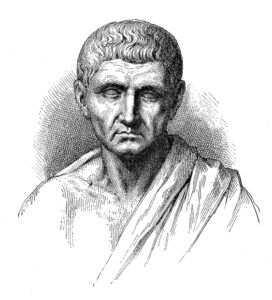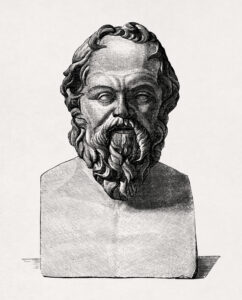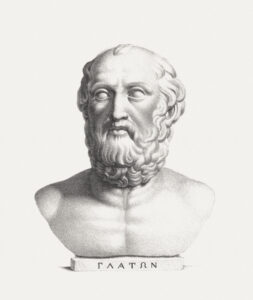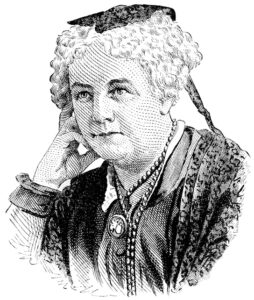This was written for the Wikipedia article. Much of that article was deleted in a dispute.
What is Patriarchy?
Patriarchy is a social system in which the father or eldest male is head of the household, having authority over women and children. Patriarchy also refers to a system of government by males, and to the dominance of men in social or cultural systems. It may also include tracing title through the male line (Webster’s New World College Dictionary). Feminist theory considers rule by men to be detrimental to the rights of women. However, patriarchal systems of government do not benefit all men of all classes.
Patriarchal Institutions versus Patriarchal Attitudes
The term patriarchy generally refers to institutions but the term is sometimes used for societal attitudes. It has been argued that “Institutions are very persistent and may last, with little change, into a period in which attitudes have altered considerably since the institutions were devised.” Gordon Rattray Taylor used the words “patrist” and “matrist” to describe these attitudes. He noted that the outlook of the dominant social group seems to swing between the two extremes. However, the patrist assertion that the patriarchal system of authority was the original and universal system of social organization leads to the establishment of corresponding institutions (Taylor, Gordon Rattray. Theories of Matriarchy and Patriarchy. Sex in History ).
History of Western Patriarchy
Aristotle

In the third century BC, Aristotle taught that the city-state developed out of the patriarchal family. However, he thought the family and the state were different in kind as well as in scale.[mfn]Lock, John, “Two Treatises of Government, with a supplement Patriarcha by Robert Filmer, edited with an introduction by Thomas I. Cook, New York. Hafner Press, 1947[/mfn] He wrote that the highest form of human community is the political community.
The Politics
In The Politics, Aristotle attempts to illustrate the nature of the hierarchies that exist in the political community and its subordinate communities. He then argues for an origin of male rule. In Chapter Thirteen he states that men and women have different kinds of virtue, “just as those who are natural subjects differ (from those who rule by nature.)” Other types of community, such as the household, are subordinate and inferior to the polis.
Aristotle proposed that the household is subordinate to the political community because the aim of life in the household is the mere preservation of life, or the satisfaction of life’s daily needs, whereas the aim of membership in the political community is to live well. He also proposed that the household is inferior to the political community in the character of its rule. In the household, the man rules by virtue of his age and sex, monarchically at best and tyrannically at worst. In the polis, citizens choose their rulers on the basis of merit. (Stauffer, Dana Jalbert Aristotle’s Account of the Subjection of Women
Socrates

Both Plato and Aristotle seem to have followed the lead of Socrates. Socrates denied that citizens had the basic virtue necessary to nurture a good society. He equated virtue with knowledge unattainable by ordinary people. During Athens’ struggle with undemocratic Sparta, Socrates favored Sparta (Linder, Doug, The Trial of Socrates).
Plato

Plato never mentioned Socrates’ sedition against Athens. However, the cosmology of the Timaeus includes the idea that a man who lives well will live a happy and congenial life on his consort star. Failing this a man’s second birth will be as a woman. (41E-42D, on the Creation of Souls).
The Athenians and the Egyptians Compared
Other ancient societies contemporary with Aristotle, as well as many Athenians, did not share these views of women, family organization, or political and economic structure.[mfn]del Giorgio, J.F. The Oldest Europeans. Guadeamus, Caracas, Venezuela, 2003[/mfn] Egypt left no philosophical record. Herodotus, on the other hand, left a record of his shock at the contrast between the roles of Egyptian women and the women of Athens. He observed that Egyptian women attended market and were employed in trade. In ancient Egypt a middle-class woman might sit on a local tribunal, engage in real estate transactions, and inherit or bequeath property. Women also secured loans, and witnessed legal documents.
This changed, however. Greek influence spread with the conquests of Alexander the Great, who was educated by Aristotle.[mfn]Bristow, John Temple. “What Paul Really said about Women: an Apostle’s liberating views on equality in marriage, leadership, and love”, Harper Collins, New York, 1991[/mfn] Eventually, when Alexander wanted to unite his two empires in equality, Aristotle was adamant that all non-Greeks should be enslaved.
Aristotle and the Jews
About 200 BC the Jewish Philosopher Aristobulus of Panaeas claimed that Jewish revelation and Aristotelian philosophy were identical. Within 200 years, it was assumed that Aristotle derived his doctrine directly from Judaism. In the 12th century the Talmudist philosopher and astronomer, Maimonides harmonized Aristotlianism with Judaism. Subsequent rabbinical thought includes such pronouncements as “Eve was not created simultaneously with Adam because God foreknew that later she would be a source of complaint (Gen. R. xvii). “Nine curses together with death befell Eve in consequence of her disobedience” (Pirke R. E. Xiv.; Ab. R.N. ii. 42). While Maimonides dared to contradict Aristotle’s ideas in matters of faith, it wasn’t long before the Islamic Philosopher Averroes, endorsed them without reserve. Aristotle in Jewish Legend
Adam and Eve: Patriarchy in Christianity
For the last 1800 years Christian leaders have placed great emphasis on the creation of Eve, believing that the story was historical fact, rather than androcentric myth. This has been used as evidence of insurmountable character defects, not just for Eve but for all women. In the 2nd century Tertullian, the son of a centurion and a pagan until middle life, told women believers, “Do you not know that you are Eve?…Because of the death which you brought upon us, even the Son of God had to die” (De cultu feminarum, libri duo I, 1).
In the 4th Century, the basic attitude was one of puzzlement over the fact of woman’s existence. Augustine of Hippo said he could not see how a woman could be any help for a man if the work of childbearing is excluded. However, it was only with Thomas Aquinas in the 13th century that Aristotle’s teachings emerged in the official teachings of Roman Catholicism. In the Summa Theologica, Aristotle asserted that women are misbegotten males (I 92 I ad 1). The influence of combining Aristotle’s theory with Biblical interpretations can’t be overestimated.
Christine de Pizan on the Christian Canon
In about 1404 Christine de Pizan wrote “Le livre de la cite des dames”. This was a systematic feminist treatise arguing against the misogyny in classical works and the Christian Canon. After the advent of printing, the discourse became known as “the Querelle des femmes” and continued for the next 400 years.
Sir Robert Filmer and the Divine Right of Kings
From the time of Martin Luther, Protestantism regularly used the commandment in Exodus 20:12 to justify the duties owed to all superiors. ‘Honor thy father,’ became a euphemism for the duty to obey the king. But Aristotle’s appeal took on political meaning primarily as a secular doctrine. Although many 16th and 17th century theorists agreed with Aristotle’s views concerning the place of women in society, none of them tried to prove political obligation on the basis of the patriarchal family until sometime after 1680. Sir Robert Filmer is primarily responsible for the patriarchal political theory. Sometime before 1653, Filmer completed a work entitled Patriarcha. In it he defended the divine right of kings as having title inherited from Adam, the first man of the human race. He based this theory on the Judeo-Christian tradition.
John Locke on Filmer
In 1688 John Locke called Filmer’s all-powerful prince “…this strange kind of domineering phantom called the ‘fatherhood’ which, whoever could catch, presently got empire and unlimited, absolute power.” Locke asserted that if ‘honor thy father’, places everyone in subjection to political authority, then it couldn’t mean the duty owed to natural fathers, since they are subjects. By Filmer’s doctrine fathers have no power since power belongs solely to the prince. Locke also observed that those who propose political rights based on this commandment invariably omit the word ‘mother’ which is present in the Biblical verse. (His editor, however, made a note of Locke’s inconsistency in attributing natural law to the governance of relations between a father and his children, while stating that the law governing relations between a man and his wife is based on legality, or on Eve’s punishment after the Fall. Two Treatises of Government).
Aristotle’s view was not weakened by this argument. It had been elevated to an anthropological doctrine.
Nineteenth Century Feminism
In the 19th Century, Sarah Grimké dared to question the divine origin of the scriptures. Later, Elizabeth Caddy Stanton used Grimke’s criticism of Biblical sources to establish a basis for feminist thought. She published The Woman’s Bible, which proposed a feminist reading of the Old and New Testament. Subsequently, feminist theory denounced the patriarchal Judeo-Christian tradition. [mfn]Castro, Ginette. American Feminism: a contemporary history. New York University Press. 1990[/mfn]

Theosophy, Evolution and Racism: Patriarchy at its Worst
In Europe, from about 1770, the rationalist Enlightenment and the desire for mystery had brought about a resurgence of a synthesis of Gnosticism, neoplatonism and kabbalistic theosophy. This particular version arose first in the utilitarian and industrial countries of America and England with the theosophy of Madame Helena Blavatsky. This had a profound impact in Germany where it fit into the lebenzreform movement. Blavatsky probably influenced Adolf Hitler through the writings of Guido von List and Lanz von Liebenfels.
Guido von List
List sought a chauvinistic mystique for the defense of Germandom against the liberal, socialist and Jewish political forces in the late Wilhelmine Era. His blueprint involved ruthless subjection of non-Aryans in a hierarchical state; qualification of candidates for education or positions in public service, as well as in professions and commerce, based on racial purity. All non-Aryans were to be slaves. His political principles included racial and marital laws, and a patriarchal society where only male heads had full majority and where only Ario-Germans had freedom and citizenship. Each family was to have a genealogical record, proving Aryan lineage. he proposed a new feudalism where only the first-born inherits. These ideas were published as early as 1911. They were similar to the Nuremberg Laws of 1935.
Lanz von Liebenfels
Darwinist writers, who wrote of blond, blue-eyed Aryans, were influential in the writings of von Liebenfels. Von Liebenfels had illiberal, pan-German and monarchical sentiments. He believed the lower classes were inferior races. It followed that they must be exterminated along with the weak. Socialism, democracy and feminism were his most important targets. Women were a special problem in his view because they were more prone to bestial lust. He advocated brood mothers in eugenic convents, sterilization and other practices that later influenced the Third Reich, apparent in Himmler’s anticipation of polygamy for his Schutzstaffel (SS), care of unmarried mothers in SS homes, and musings on the education and marriage of chosen women.[mfn]Nicholas Goodrick-Clarke, The Occult Roots of Nazism: Secret Aryan cults and their influence on Nazi ideology: the Ariosophists of Austria and Germany, 1890-1935, New York University Press. 1992[/mfn]
Romantics and Marxists
By 1673, Francois Poullain de la Barre, “On the Equality of the Two Sexes”, had turned feminism into a systematic Enlightenment philosophy (as opposed to the previous Renaissance feminism). However, in 1861, Johann Jakob Bachofen, a German romantic and writer of the counter-Enlightenment said that matriarchy preceded patriarchy, and is superior to patriarchy on moral grounds. Bachofen influenced Karl Marx and Frederick Engles. Marxist analysis has been a basis for subsequent feminist thought.[mfn]Stjepan Gabriel Meštrović, Durkheim and postmodern culture. A. de Gruyter, New York. 1992[/mfn] From the beginning, socialist feminists in France, for example, were challenged by the republic, which “oppressed them as workers and women; by Marxism, which ignores gender; and by the misogyny of their socialist brothers. This struggle continues within all parties of the left (History of Feminism).